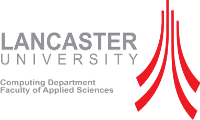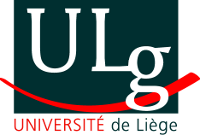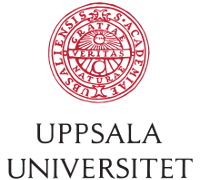Click a logo to show information
→
ETH Zurich, Switzerland
ETH Zurich, the Swiss Federal Institute of Technology, at Zurich, Switzerland, forms a community of 18,000 people from 80 nations who study, do research or are employed there. About 360 professors in 15 departments teach mainly in the technical, mathematical and natural sciences areas and carry out research that is highly valued worldwide. ETH Zurich has the important task of maintaining and developing its top standing in the international competition among top universities. They fulfil this forward-looking task in service to the Swiss nation as a nationally grounded but internationally oriented institution of higher learning. Twenty-one Nobel Prize winners are connected with ETH Zurich.
ETH Zurich was founded in 1855 as the "Eidgenössisches Polytechnikum" (Federal Polytechnic Institute). At that time, as the "child" of the new federal government, it was the only national university of Switzerland. Today, ETH Zurich, EPF Lausanne and four research institutions have been linked together to form the national ETH domain. CSG is one of three research groups of the Computer Engineering and Networking Lab (TIK), which itself is the largest lab of the Department of Information Technology and Electrical Engineering (D-ITET).
In the ResumeNet project, the Communication Systems Group (CSG) is responsible for the global project coordination and is part of the technical management committee. The group is responsible for Work Package 4 (Experimental evaluation of resilient networking) and Work Package 6 (Project management).
France Telecom - Orange Labs, France
Orange Labs, the R&D Division of France Telecom, is composed of 5000 researchers and engineers worldwide, and includes research and development activities in both security and dependability. Research in security covers all aspects of information system security with focus on cryptography, Internet security, and mobility. Dependability activities cover both networks and services aspects, from the definition of technical architectures to the engineering of the telecom operator's services, through resilience testing and reliability assessment.
As an example in the context of the EU FP6, Orange Labs is member of the Network of Excellence (NoE) ReSIST (Resilience for survivability in IST). Also, concerning FP7, France Telecom's R&D Division is the project coordinator for the STREP WOMBAT (Worldwide Observatory of Malicious Behaviors and Attack Threats), is involved in the IP 4WARD (Architecture and Design for the Future Internet), and the NoE ECRYPT II (Cryptology).
NEC Europe Ltd, Germany
NEC is a leading global manufacturer and service provider of telecommunication, computer and electronic devices, and it began business in Europe in the early 1970s. The Network Laboratories in Heidelberg, Germany have been established in 1997, as NEC's second research facility in Europe. The Laboratories place special emphasis on software-oriented research and development for the next generation Internet. New communication architectures and protocols supporting multimedia and mobility over the next generation Internet, together with intelligent Internet services and network management solutions are the core of our work.
The laboratories have quickly become a recognized partner in various collaborative research and development projects conducted jointly with European service providers, technology vendors and academic research groups. Less than 4 years after their inception, the labs are leading contributors to the European Union's Information Society Technology program (EU IST), as well as various national German R&D activities. Its researchers have shown their strong leadership competence in the context of several IST projects, such as Ambient Networks, Daidalos, MOME, MobiVAS and Mobilife. NEC Heidelberg staff also actively contributes to scientific conferences as well as standard organizations like IETF, 3GPP and IEEE. Due to the ever increasing complexity of today's and future network and communication systems and the growing cost that is involved in operating and managing those systems, the Heidelberg laboratories have already started to research into novel, automatic and adaptive network management and communication solutions. As a result of the strong interest in this area, the laboratories have further adopted the vision of autonomic network management and communications as one of its key areas of research.
Delft University of Technology, The Netherlands
The Delft University of Technology is the oldest and largest technical university of The Netherlands. The university is organized in seven faculties, each covering a number of technical disciplines. The department of Telecommunications belongs to the Faculty of Electrical Engineering, Mathematics and Computer Science (EEMCS). The department of Telecommunications is one of the seven departments of the faculty EEMCS and consists of seven chairs, combined into four research groups (basic units): Network Architectures and Services (NAS), Wireless and Mobile Communications (WMC), Telecommunication Tele-observation Technology (TTT) and Electromagnetic Research (EM). A wide scale of telecommunications topics are studied and educated. Aspects of network architectures (OSI layer 3 up to application layer 7, including peer-to-peer networks), as well as the link layer technology (OSI layer 2) and mobile communications are the main focus of research in NAS and WMC.
The basic unit NAS at Delft University of Technology, further abbreviated by TUDelft, has experience in establishing communications network architectures, aspects of quality of service (in particular QoS routing & traffic engineering) and the modeling and performance analysis of complex networks and infrastructures, based on measurements.
Technische Universität München, Germany
The Tübingen group has moved from University of Tübingen to Technische Universität München (TUM - Munich University of Technology). Research activities include innovative Internet technologies, with special focus on network security, network monitoring, attack detection and defense, secure peer-to-peer and overlay networking, and negotiation of security policies over fixed and mobile network technologies.
The chairholder, Prof. Carle, has been active in a number of research projects funded by the European Commission, national research bodies, and industry, and has taken frequently a leadership position in these projects. Members of the department are also active in the IETF and contribute to the standardization process in several working groups. Prof. Carle and members of his group have been co-organising and co-chairing several workshops in renowned conferences, such IEEE INFOCOM and ACM SIGCOMM.
University of Lancaster, United Kingdom
Lancaster University is an internationally recognised Centre of Excellence for Information and Communication Technologies (ICT). The Computing Department has been active in Networking and Distributed Computing research for the past seventeen years. It has a significant critical mass of around 65 members, runs around 30 research projects, and has an annual income of £1.5 million. Its strength has been acknowledged by the recent International Review of UK Computer Science that cited Lancaster as one of only a handful of centres undertaking "leading edge systems research". This work has attracted strong support and collaborations from industry such as BT Labs, Microsoft, Cisco, HP Labs, Orange France Telecom, Lucent, Intel, Agilent Labs, Telekom Austria, and ETRI in S. Korea. Lancaster is also a central participant in EU/IST funded research projects, and several R&D projects funded by the UK Engineering and Physical Sciences Research Council (EPSRC).
Lancaster has been working in a number of projects related to advanced communication, which more recently also includes resilience and autonomic networking. For instance, within the EU FP6 project ANA, Lancaster is looking into issues related to resilience, autonomic organization and functional composition of autonomous network nodes. The Networking and Distributed Computing group is well known for its work on communications protocols and services, reflective middleware, programmable and active networking, autonomic network systems management.
University of Liège, Belgium
Founded in 1817, the University of Liège (ULg) is the only public community-sponsored university in the French-speaking part of Belgium, which offers a complete range of university courses at undergraduate and postgraduate levels. In this project, ULg is participating via the RUN (Research Unit in Networking) group of the Department of Electrical Engineering and Computer Science (EECS). Research in RUN bears on traffic engineering, mobile communication, congestion control, programmable networks and application of machine learning to computer networks. RUN has been continuously involved in European projects since the outset in 1983, in the context of the ESPRIT, RACE, ACTS and IST research frameworks. RUN was also a partner in the E-NEXT European network of excellence and five COST actions. RUN is currently involved in the EU FP6 IP ANA on Autonomic Networking; there it is chairing a WP on self-management, which also includes an important task on network resilience. The group is also involved in the Belgian TOTEM project on traffic engineering.
ULg has applied machine learning techniques successfully to a set of networking problems, among which: (1) Learning how to discriminate loss causes in networks (congestion losses versus wireless channel losses) to improve TCP behaviour and multicast transport; (2) Learning mobility patterns of mobile nodes to predict mobility and therefore improve handovers; (3) Learning correlated failures (shared risks) to improve network resilience.
University of Passau, Germany
UP has recently built up an IT Centre (€15 million) to combine industrial cooperation with long-term research, with particular focus of research on IT-Security, future networking and fundamentals of self-organization. A unique and interdisciplinary research centre, the Institute of IT-Security and Security Law (ISL), has been established at UP in August 2006. UP's excellence of research has been demonstrated within many internationally funded projects among them METEOR, FORMAT, DRAGON, PROSPECTA or MULTIWORKS as ESPRIT projects and INTELLIWOOD, FABRIC, TRAIN-ALL, 2TRAIN, wearlIT@work, MonAMI, PReVENT, RELATE, and AUTONOMIC INTERNET as IST projects.
UP has been a member of several Networks of Excellence: EuroNGI, EuroFGI and CoreGRID. The main national projects have been funded by UK's national research council (EPSRC), German national research council (DFG - Deutsche Forschungsgemeinschaft), the BMBF and companies (Siemens, BMW, Novotronik, IABG, etc.). UP's Internet and Networking research group is specialised in the area of Quality of Service in the Internet, network programmability, security and privacy in the future Internet, P2P networking, and self-organization. In 2006, UP organized and hosted the 1st International Workshop on Self-Organizing Systems (IWSOS 2006) sponsored by EuroNGI Network of Excellence and GI. In 2005, UP hosted the 13th IWQoS (International Workshop on Quality of Service), an international annual conference jointly sponsored by IEEE ComSoc, ACM, IFIP, GI, EuroNGI and COST290.
University of Uppsala, Sweden
Uppsala University, founded in 1477, is the oldest university in the Nordic countries. The Communication Research group was founded in the year 1999 and is part of the Department for Information Technology. Staffed by 3 faculty members, 1 staff member and 5 graduate students, the group conducts cutting edge research in the areas of mobile ad hoc networks, opportunistic networking, wireless sensor networks, and wireless security. The Communication Research group is well connected with other international research laboratories, but also with local industry such as Ericsson.
The group features outstanding research records and large experience of participation in EU, national, and international projects, where it has partnered with prominent academic institutions. In the context of the EU FP6, Uppsala University is leading the Haggle architecture and testbed work.
©Copyright by ResumeNet
!!! Dieses Dokument stammt aus dem ETH Web-Archiv und wird nicht mehr gepflegt !!!
!!! This document is stored in the ETH Web archive and is no longer maintained !!!
!!! This document is stored in the ETH Web archive and is no longer maintained !!!








